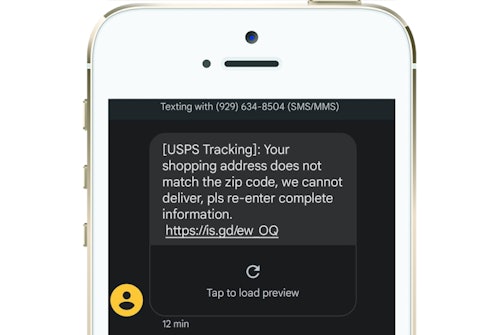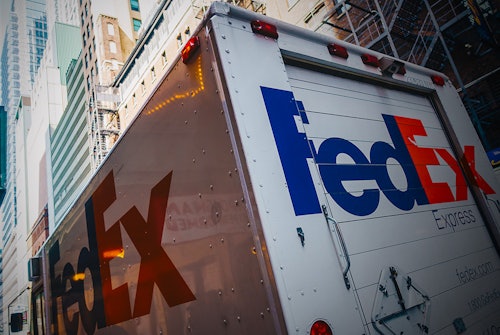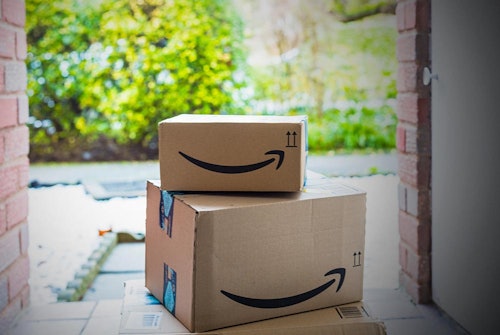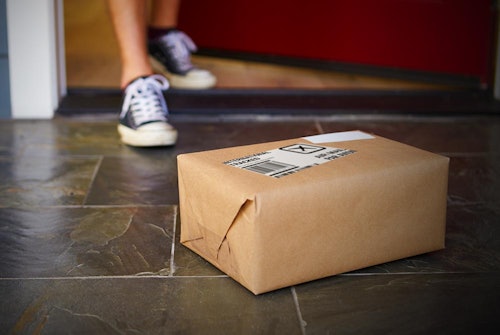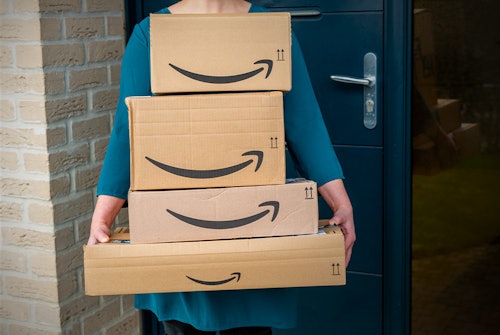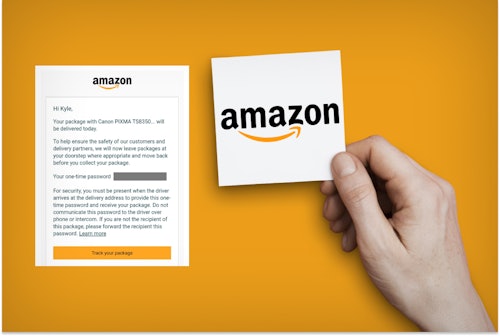Delivery In Depth
- What Are Package Delivery Scams?
- Warning Signs of a Delivery Scam
- Most Common Package Delivery Scams
- How to Beat Package Delivery Scams
- Recovering from a Package Delivery Scam
The 2020 pandemic has changed the way consumers shop, with many Americans now spending more time buying all of their needs online—from groceries to apparel, home goods, pharmaceuticals, electronics, and luxury goods. Of course, with this new increase in online shopping comes a surge in package delivery scams.
In 2021, the FTC reported that the total losses from all types of scams in 2020 was more than $3.3 billion, up from $1.8 billion from the year before. Of these, online shopping was the second-most common category of fraud reported by consumers, elevated by a surge of reports in the early days of the COVID-19 pandemic.
What Are Package Delivery Scams?
Delivery scams happen every day but are most common around the holidays when more packages are being shipped worldwide. According to the Better Business Bureau, many package delivery scams begin with communication regarding a delivery being sent to your address.
Oftentimes, scammers use these types of texts or emails to steal your money and personal information via phishing links or downloads.
Here's an example of how a delivery scam might work:
- You receive an email from a well-known courier such as FedEx, UPS, or Amazon
- The correspondence asks you to click a link to confirm a delivery, update your payment method, or handle a missed delivery
- Once you click on the link, it will take you to a phishing site which requires you to enter sensitive information
- After you've submitted your information, the scammers will have access to your accounts
In other delivery scams, you'll receive a call regarding a shipment that requires your attention. Typically, the scammers will say they need you to verify your account information or credit card number used for the purchase. Once you’ve given them this info, they’ll have your information and you won’t be able to get ahold of them again.
Warning Signs of a Delivery Scam
The good news is, if you’re aware of the red flags of package delivery scams, you can potentially save yourself from being the victim of fraud.
Scammers count on their victims to make quick decisions and not ask questions. The first question you should ask yourself is if you actually ordered anything that requires you to deal with deliveries. If not, delete the email/text or hang up the phone immediately, it’s likely a scam.
Here are other red flags to look out for:
- You receive an OTP (one-time password) from Amazon when you didn't request one.
- You receive a confirmation that a delivery has been made when you haven't ordered anything.
- You receive a package you never ordered.
- You’re asked to pay a fee to have your package delivered (often sent with a false sense of urgency).
- You receive suspicious notifications which include grammatical or spelling errors.
- Links within the body of an email or text include misspelled or incorrect website addresses such as fed-ex.com (the correct site is fedex.com).
- A buyer says they will provide the shipping label for you.
- A buyer asks you to use their shipping account.
Most Common Package Delivery Scams
Package delivery scams come in all forms, but some of the most common ones to be on the lookout for include:
Brushing Scams
In a brushing scam, a person receives a package they have not ordered. There will be no return address, or it will just have the return address of the retailer. In this case, the scammer's intention is to create a "verified buyer" on an online store and then use that buyer's name and details to add a fake positive review about the product.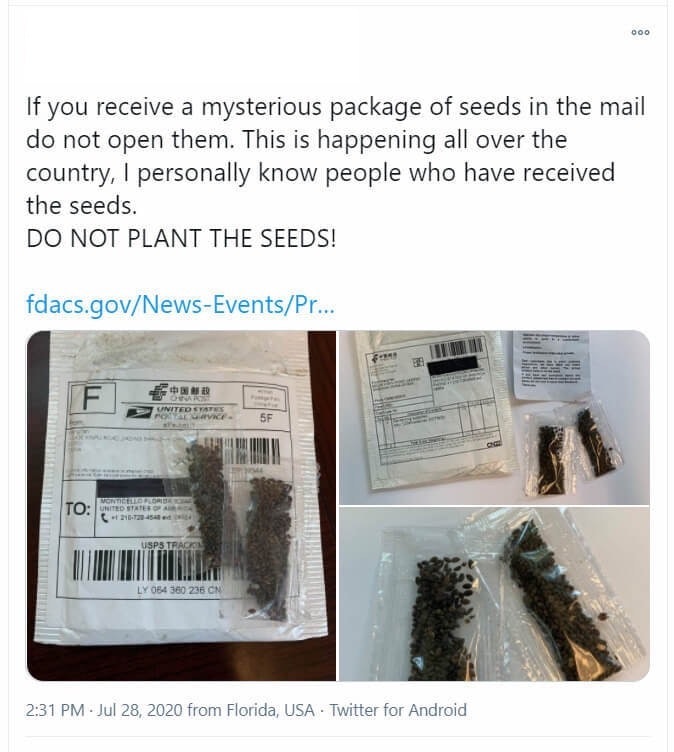
PayPal Shipping Scams
There are a few varieties of PayPal shipping scams. In a PayPal package reroute scam, the scammer asks you to use their shipping label for a product they purchased from you. The scammer will then have the item shipped to a non-existent address, correct the address to their own, and claim they never received the item.
Phishing Shipping Scams
In a phishing shipping scam, the scammer will send an email that looks like it is from a verified courier service such as UPS, DHL, FedEx, or Amazon. The email will say that there has been an issue with an order and ask the recipient to click a link to correct or validate details. The link will point to a fake site that looks like the official site and is set up to steal any credentials you enter.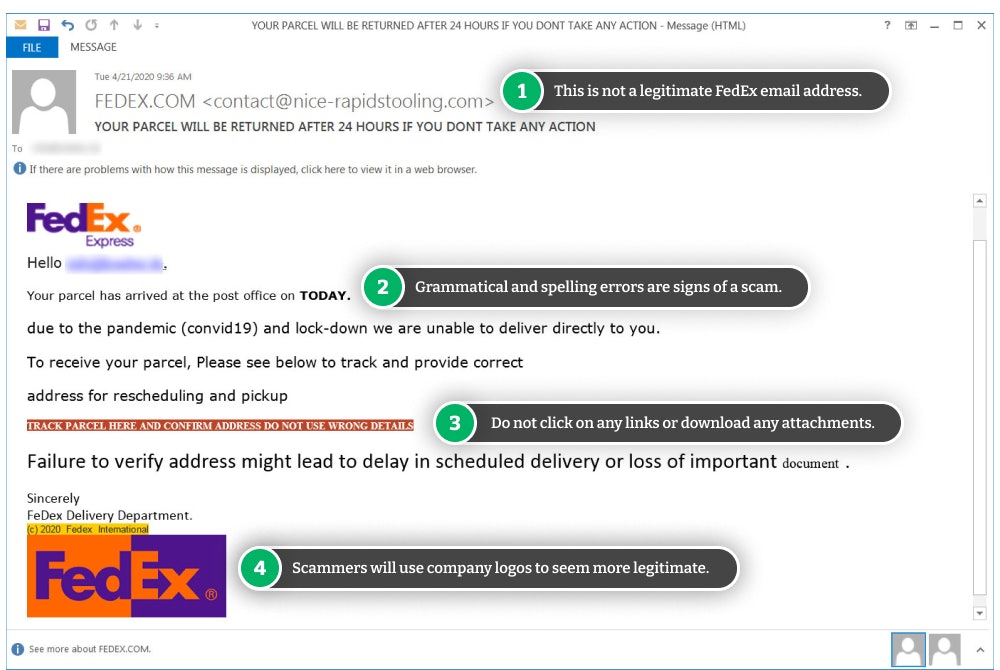
Amazon OTP Delivery Scam
In an Amazon OTP (one-time-password) scam, the scammer hacks your Amazon account, buys an expensive item, has it shipped to your address, and steals it when it is delivered. It is named an OTP delivery scam because the victim of the scam will receive OTP emails during the scam.
Local Pickup Scams
In an eBay local pickup scam, the scammer will buy an item from you on eBay and then send you an email asking to pick it up locally. The scammer will then pick up the item and, once they have it, file a claim that the item was never received and get a refund of the purchase price.
Example Message from ScammerI live in the area so I can come pick the item up myself so you don't need to pay for shipping or go through the hassle of going to the post office. I can still pay shipping costs. I just need it as soon as possible since I'm leaving town and won't be home to accept the delivery.
How to Beat Package Delivery Scams
If you are dealing with a delivery and notice some of the red flags of a delivery scam mentioned above, don't worry, you can protect yourself and avoid falling victim to the scammer. Here are some tips to help you do that:
- Always use your own shipping labels and a shipping company you trust when shipping your sales.
- Don't accept a pre-paid label from a buyer.
- Always confirm payments for products at the official site of your financial institution or PayPal.
- Don't accept local pickups for eBay sales.
- If a buyer paid through PayPal, only ship to the address on the invoice.
- Always use unique, secure passwords for your internet accounts and change them frequently.
- Don't click links in emails or texts that you aren't expecting.
Recovering from a Package Delivery Scam
If you have fallen victim to a delivery scam, there are a few things you can do to prevent the damage that scammers will do to your finances and information.
Report the Scam
The first thing you need to do is report the scam. Who you report it to depends on the type of delivery scam you are dealing with:
- The FTC at 1-877-382-4357 or online
- The FBI Internet Crime Complaint Center (IC3)
- Your state's Attorney General
- Your local police department
- Paypal, eBay, or Amazon if the scam used one of these platforms
You can also report the scam to the shipping company involved via email:
- UPS: [email protected]
- FedEx: [email protected]
- DHL: [email protected]
- Amazon: [email protected]
Contact Your Financial Institution
You should also contact your bank or financial institution if you entered your bank account or credit card information on a fake site or paid the scammer. They can help you with any fraudulent activity on your account and hopefully credit it with the funds taken by the scammers.
While you're not guaranteed coverage, many credit cards today offer protection against scammers, ensuring you'll never lose any money through a scam like this.
Protect Your Equipment and Data
If you clicked a link in a phishing email or downloaded a file during the scam, you will need to make sure to protect your device and data.
- Disconnect the affected device from the internet.
- If you entered account credentials on a phishing site, change those passwords on another device.
- Check your browser for extensions you didn't add, and if there are any, remove them.
- Run antivirus software to remove any harmful software that may have been installed on the affected device.
Notify the Company That Sent the Item
If you had a product delivered to you that you never ordered, contact the company that sent the product via their online contact form or phone number.
Never use the contact information used on the correspondence (if any) that you received with the package.
Let them know what you received, that you didn't order it, and you think a scammer is behind it. As far as the item itself goes, you can keep it according to the FTC.
Scams Relating to Delivery

FedEx Text Scam: Fake Delivery Alerts & Notifications
FedEx is warning customers of a fake text alert going around regarding an issue with a delivery. Learn how to avoid this tricky scam.
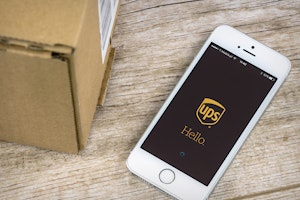
Get an Unexpected Delivery Alert? It May be a UPS Text Scam
Scammers are using SMS messages to send fake alerts to customers regarding a package delivery. Here's what to know about this scam.
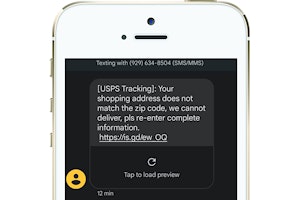
Fake USPS Text Messages Steal Your Amazon Login
Beware of fake USPS text messages that claim your address doesn’t match your zip code—it’s a scam to steal your Amazon login credentials.

How to Avoid PayPal Shipping Label Scams: Top Tips
PayPal is a convenient way to pay for online purchases and has a reputation for safety and security. But scammers still find a way to use PayPal to help them steal products.

PayPal Shipping Scams: Tips to Protect Your Money and Items
Scammers take advantage of PayPal's buyer protection program to scam sellers out of their money and items for sale.
Beware of the Parcel Tracking Text Scam
Delivery companies like FedEx, USPS, and UPS are being impersonated in text messages instructing recipients to visit a scam website—here's what you need to know.
Beware of USPS Scam Text Messages—Don't Click the Link
Receive a text message about a USPS delivery? If it contains a link, it's a scam—don't click the link!
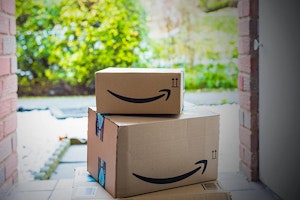
Amazon Brushing Scam: Receiving Packages You Didn't Order
Received an Amazon package that you didn't order? Check your account—scammers could be posting fake reviews on your behalf.

Amazon OTP Delivery Email: Protection Against Fraud
You can fight scammers who order big-ticket items from your Amazon account with a one-time password that stops them from receiving the item.

Shipping Scams Use Fake Emails to Steal Your Information
Scammers are sending convincing emails, posing as shipping companies and online shopping sites, in order to collect your personal information.
Guides Relating to Delivery

6 Common FedEx Scams Meant to Steal Your Info & Money
Stay cautious when you receive unexpected text messages or emails from FedEx—they could be fake messages being sent from scammers in an attempt to steal from you.

Beat eBay Scams and Stay Safe When Shopping Online
Whether it's a counterfeit product, a sketchy seller, or a price too good to be true, eBay scams are widespread, so it's important to know how to protect yourself.

How to Claim Free Grubhub Delivery for a Year with Amazon Prime
Amazon's acquisition of 2% of Just Eat Takeaway is good news for Amazon Prime subscribers—free food delivery from Grubhub is just a few clicks away.

Facebook Marketplace Scams: How They Work & Red Flags
Online marketplaces may offer you opportunities to find some great deals—but they offer scammers just as much of a chance to score.
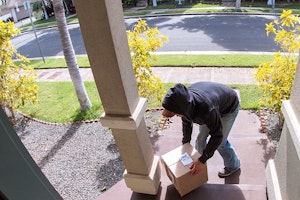
7 Easy & Effective Ways to Stop Porch Pirates
With online shopping on the rise, these 7 tips and tricks can help you stop porch pirates from stealing your packages this holiday season.
News Relating to Delivery

Urgent CDC Warning: Eye Drops Linked to 3 Deaths, Loss of Vision
The CDC is warning eye drops users of a rare bacterial infection from 2 brands of eye drops. The infection is resistant to antibiotics and has resulted in the loss of vision, loss of eyeballs and the death of 3 patients.

Banks May Refund More Zelle Scam Victims in 2023
Zelle scams have reached a serious volume. New reports suggest that banks are looking at new refund protections for customers in 2023.

Optus Data Breach - One of the Worst Cyberattacks in Australia
Hackers have gained access to 9.8 million customer records from Optus in Australia, exposing personal information such as driver licence, medicare and passport details.

Roe vs. Wade Overturned: Abortion Rights in Your State
Find out what the overturning of Roe vs. Wade means for abortion rights in your state.
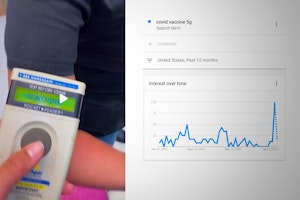
Searches for "COVID Vaccine 5G" Hit All-Time High, But Microchips Definitely Not in Vaccine
The number of people searching for the term "COVID vaccine 5G" on Google has just hit an all-time high, but there's one way to be sure that there are no microchips.

